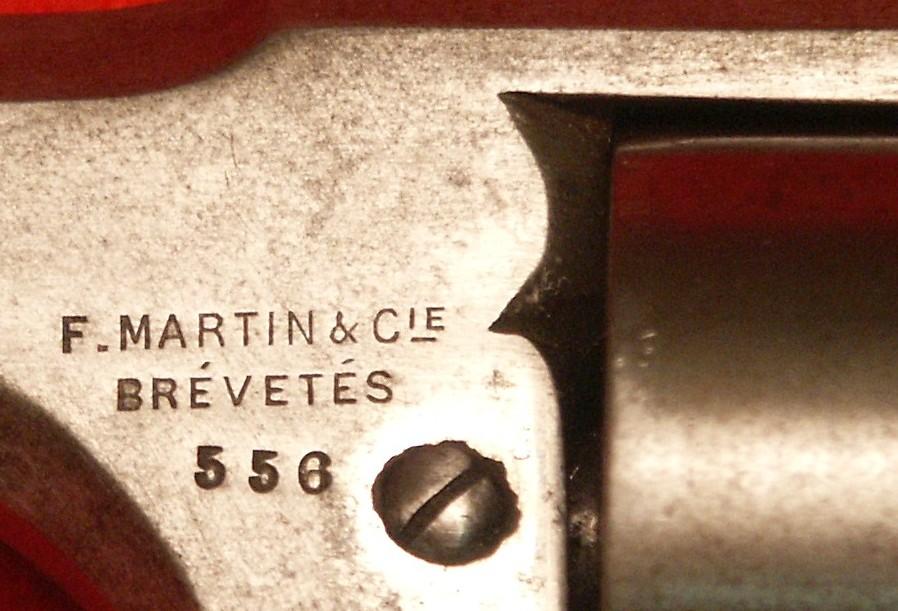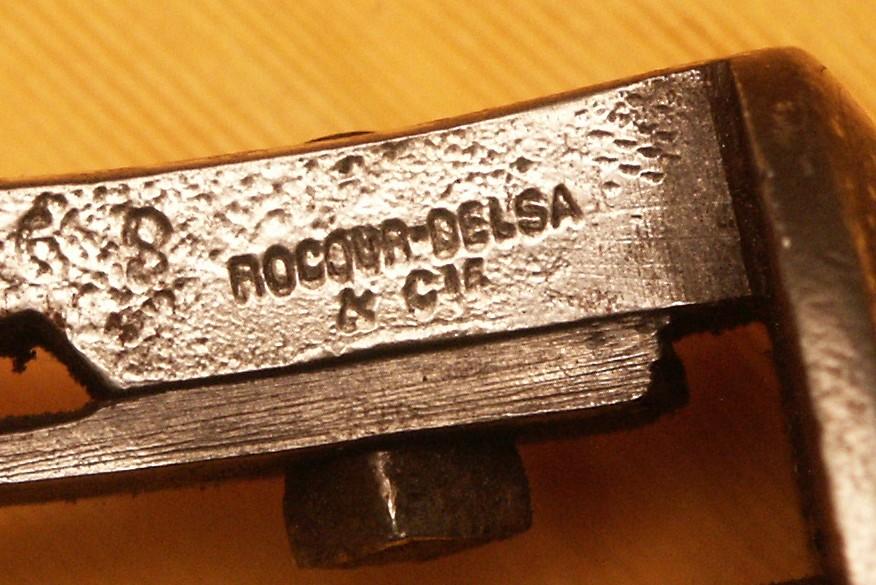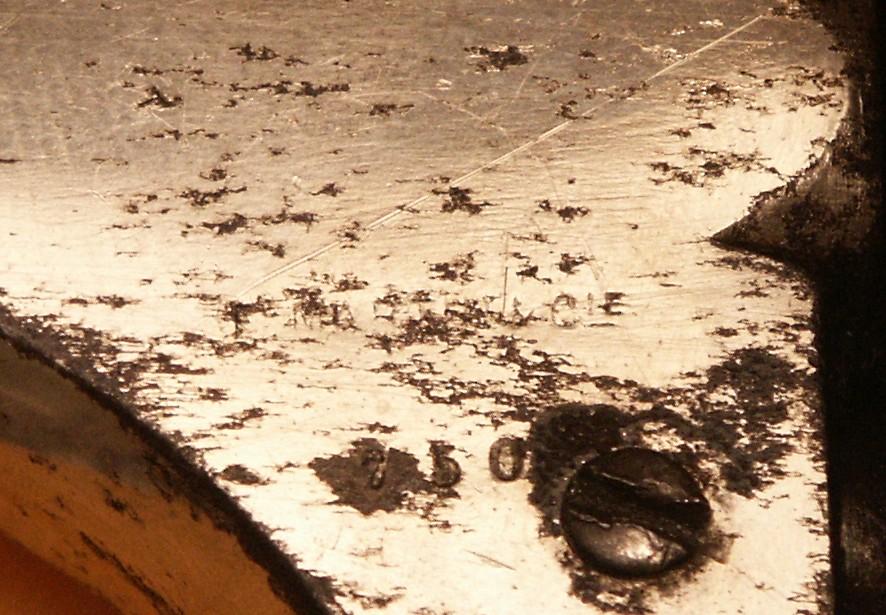Some of the most beautiful work of this craftsman, and many others, are in this book “Liège Gunmakers through their Work. 1800 - 1950”.
For more detail see: LIEGE GUNMAKERS
Rocour Delsa & Cie - F. Martin
This crucible cast steel revolver is with six shots in simple and double action and with articulated frame.
The weapon opens to a bolt placed in front of the carcass, the barrel-gun unit swivels then upwards like the first S & W.
The barrel is with 7 sides and the trigger without trigger guard is folding.
The barrel is not grooved.
The grips are in drowning smooth, maintained by a through screw and two oval rivet washers.
This weapon seems to be a copy inspired of the revolver of Albert SPIRLET patented by itself. Patent SPIRLET covers mainly the extractor, nothing thus does not prevent legally the MARTIN firm from producing his own revolver without the extractor.
MARTIN markets his weapon on the civil market, mainly in 9 mm, but also into 320 and 380. The weapon is a great success because to the system with reversed crack authorizing a loading unloading like at its price lower than the SPIRLET.
The weapon carries the punches of the bench of tests of Liege, namely:
- Spangled ELG in an oval: final acceptance, of use of 1846 to 1893.
- X crowned: countermark of the controller, of use of 1853 to 1877.
Firm ROCOUR-DELSA B & Co was registered with the proof house of Liège of 1872 to 1875 and is patentee Belgian for improvements brought to the gun-revolvers with central fire and pinfire. Of share its mark discreetly placed under the plates of stick, it is probable that this company was the manufacturer of the carcass only.
MARTIN François was a manufacturer of weapons with DALHEM (Liege) He deposits of 1864 to 1905, six Belgian patents for improvements brought to the revolvers of which some with MARTIN Jacques.
GG

Rocour Delsa
The patent of this weapon belongs to F. Martin & Co but the manufacturer is ROCOUR DELSA.
Operation is very similar to the Spirlet revolver but without system of ejection.
On this weapon the ejection of the casings is done by removing the barrel and while being useful of the needle stem of this one.

